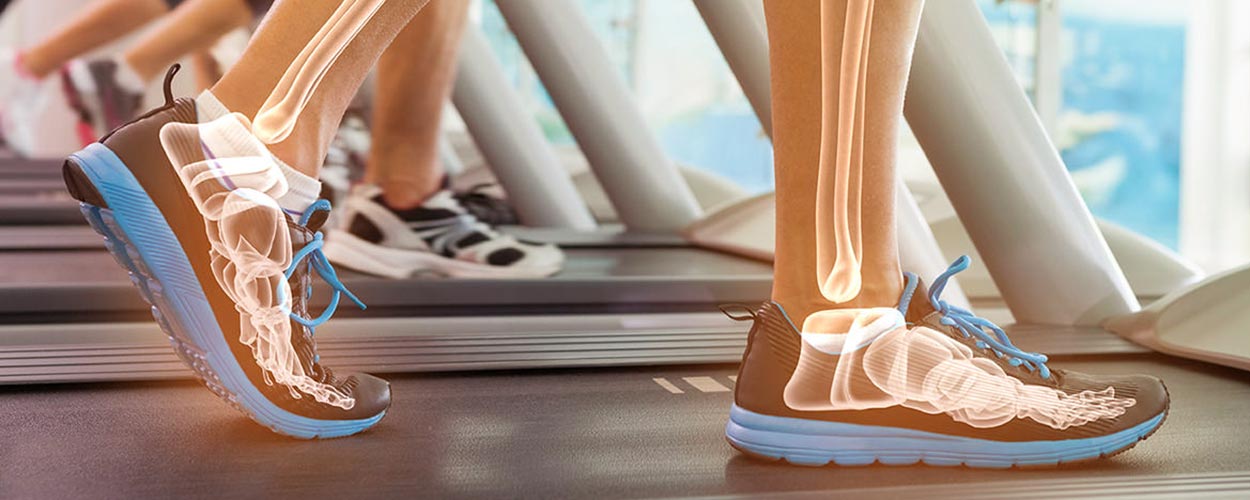- Bariatric Surgery
- Cardiology
- Transplants
- Neurology
- Oncology
- Bladder Cancer Treatment
- Bone Cancer Treatment
- Breast Cancer Treatment
- Colon Cancer Treatment
- Esophagus Cancer Treatment
- Kidney Cancer Treatment
- Leukemia Treatment
- Liver Cancer Treatment
- Lymphoma Treatment
- Lung Cancer Treatment
- Myeloma Treatment
- Prostate Cancer Treatment
- Pancreatic Cancer Treatment
- Ovarian Cancer Treatment
- Testicular Cancer Treatment
- Orthopedics
7 misconceptions about Healthy Bones and Calcium
Calcium plays a major role in building bone health and density and also involved in other functions like blood clotting, neural functions, and regulation of the heart’s rhythm. Calcium is the most abundant mineral in our body, stored mostly in bones and teeth. There are several medical conditions associated with degrading bone health. The most widespread of these are ones – Osteoporosis and osteopenia.
Osteoporosis is a bone disorder linked to thinning and weakening of bones, arising mainly due to deterioration of bone mass with increasing age as new bone tissue is not being formed. With the increasing number in the population getting diagnosed with bone disorders, there are various myths and misconceptions that are being formed. This can impact the ability of people to form sound judgement and opinion regarding their lifestyle and in general health. These are the 7 myths which are prevalent and needs to be busted!

1. It’s an old woman's disease
It is a general misconception that osteoporosis is just an old age related problem in women and men don’t fall prey to it. But that’s not true! Anyone can develop bone loss issue at any stage as it depends on various factors. The bone mass is at its peak when you are 35 and then as we age, it starts depleting. Women are more prone to this disorder, especially ones above the age of 65, as the naturally have thinner and smaller bones than men and low estrogen levels are associated with bone loss too. But that does not men and younger women are immune to deteriorating bone health. Certain medications like anti-seizure drugs, chemotherapy, steroids and many strength-improving drugs can impact bone tissues. Apart from these, medical conditions like celiac disease and hyperparathyroidism that can cause loss of bone mass. Also the chances of developing osteoporosis and osteopenia increases if the person smokes, drinks or have low levels of Vitamin D.
2. Only good calcium intake is enough for bones!
Calcium is certainly very important for maintaining bone health but there are other essential elements which also play a key role in strengthening bone tissues, such as magnesium, Vitamin K and strontium, and don’t forget Vitamin D! For effective absorption of calcium, you need to maintain a good level of Vitamin D. The natural way of obtaining this vitamin is to get adequate sunlight and through food products. In case of deficiency, Vitamin D supplements and fortified food products is recommended to maintain the optimal levels.
It is as important to take part in physical activities and be generally active as it is maintain calcium, Vitamin D and other nutrients in our body. Exercises and weight-training strengthen the muscles which in turn protect the bones.
3. Normal diet is enough to have healthy bones and maintaining calcium levels.
A calcium rich is no doubt a good source to look after your body’s calcium needs. But at times, due to lifestyle and eating habits, many are unable to do so. After crossing a certain age women are advised to take care of their bones and maintain a necessary level of calcium. This can be done by taking calcium supplements which can be calcium citrate or lactate and available in so many forms – chewable, pills, powdered and fortified food items. For those with lactose intolerance, yoghurt and cheese could be good substitutes of dairy items, but if necessary they can also turn to supplements.
Connect with Experts & Get a Free Personalized Quote
4. The more I take the more it would help my bones!
That’s not true. In fact, the overabundance of calcium and Vitamin D can result in hypercalcemia and toxicity, which itself pose medical issues in our body. So it is important to take only the suggested amounts of supplements and doses to maintain the optimal level. In a healthy person, diet and natural source can be enough, but if you are suffering through some deficiency or related disorder, get those prescribed supplements and don’t overdo.
5. Calcium affects weight loss and calcium rich products like milk are fattening.
This a general misconception that more calcium intake through dairy products can dampen your goals of a slim waist. When in fact, some studies suggest that better intake of calcium has positive impact on losing weight. Moreover, there are other sources than just milk to fulfil your calcium requirements like leafy greens or you can go for low-fat milk in case it is a favoured source for you. It is even reported in some researches that calcium from low-fat dairy products is better than the supplements when it comes to weight loss.
6. Bone density test is painful and positive diagnosis suggest you will suffer from fractures.
The Bone Density test called as DeXA is done using a Bone densitometer in which a small amount of radiation is used to measure bone mass and density. The test hardly takes 10 minutes and is not at all painful. There is an increased risk of fracture of fractures due to weak and fragile bones but that does not mean it is inevitable. Studies show that almost 50% of such people never have a fracture. But it is as important to get yourself tested and look after your weak bones even if the results are not positive.
7. There aren’t any signs or symptoms of bone loss.
It is a silent disease and develops over the years. But one can look out for certain symptoms which can point towards this developing problem. Symptoms may include the following:
- Receding gums
- Decreased grip strength
- Weak and brittle fingernails
- Cramps, muscle aches and bone pain
- Height loss and low overall fitness
Consult an orthopedic specialist if you are concerned about your bone health status and get evaluated for calcium levels. Osteoporosis can cause severe damage to the bones and weaken the joints and in certain cases, joint replacement procedures like total hip replacement might be needed. If you are already have osteoporosis or have an increased risk of developing the disorder, the doctor can prescribe you medications and therapy that might help you manage the condition.

Written By Vanshika Rawat
Vanshika Rawat is an experienced content developer. She is very knowledgeable in the field of science and healthcare and has worked under brilliant scientists during her higher education. Vanshika obtained her degrees in Masters in Science and Bachelors in Science (Microbiology with Hons.) from renowned institutions - Panjab University and University of Delhi.Cost Calculator

Top Specialities
- Best Doctors in India
- Best Bariatric Surgeons in India
- Best Bone Marrow Transplant Doctor in India
- Best Cardiologist in India
- Best ENT Doctor in India
- Best Epilepsy Doctors in India
- Best Gastroenterologist in India
- Best Hair Transplant Surgeon in India
- Best Hematologist in India
- Best Hip Replacement Surgeon in India
- Best Infertility Doctor in India
- Best Knee Replacement Surgeon in India
- Best Liver Transplant Surgeon in India
- Best Nephrologist in India
- Best Neurologist in India
- Best Neurosurgeon in India
- Best Oncologist in India
- Best Orthopedic Doctor in india
- Best Ophthalmologist in India
- Best Penile Implant Surgeon in India
- Best Penile Enlargement Doctor in India
- Best Plastic Surgeon in India
- Best Pulmonologist in India
- Best Rhinoplasty Surgeon in India
- Best Rhinoplasty Surgeon in Turkey
- Best Spine Surgeon in India
- Best Urologist in India
- Best Cardiologists in the World
Top Treatments
- Bone Marrow Transplant Cost in Turkey
- Gastric Band Cost Turkey
- Cochlear Implant Surgery Cost in India
- Cancer Treatment Cost in India
- Erectile Dysfunction Treatment Cost in India
- Hair Transplant Cost in India
- Laser Eye Surgery Cost in India
- Penile Implant Surgery Cost in India
- Penis Enlargement Surgery Cost in India
- Spine Surgery Cost In India
- 5000 Grafts Hair Transplant Cost Turkey
- Gastric Sleeve Surgery in Turkey
- Turkey Hair Transplant Package
- Liver Transplant in Turkey
- Penis Enlargement in Turkey
- Kidney Transplant Cost in Turkey
- Knee Replacement in Turkey
- IVF Cost in Turkey
- Proton Beam Therapy Cost in India
- LVAD Cost in India
- Pediatric Liver Transplant Cost in India
- Limb Lengthening Surgery Cost in Turkey
- 5000 Grafts Hair Transplant Cost Turkey
- 5000 Grafts Hair Transplant Cost
- Liver Transplant Success Rate in India
- Liver Cancer Treatment Cost
- Pancreatic Cancer Treatment Cost
- Prostate Cancer Treatment Cost
Best Hospitals for Top Treatments
- Best Blood Cancer Hospital in India
- Best Bone Cancer Hospital in India
- Best Bone Marrow Transplant Hospitals in India
- Best Breast Cancer Hospital in India
- Best Cancer Hospitals in India
- Best Hospital for Brain Tumor in India
- Best Hip Replacement Hospital in India
- Best Heart Hospital in India
- Best Kidney Transplant Hospital in India
- Best Knee Replacement Hospital in India
- Best Liver Cancer Hospital in India
- Best Liver Transplant Hospital in India
- Best Lung Cancer Hospital in India
- Best Neurology Hospital in India
- Best Orthopedic Hospital in India
- Best Spine Hospitals in India
- Best IVF Centre in India
- Best IVF Clinics in Turkey
- Best Hair Transplant Clinic in Turkey
- Best Prostate Cancer Hospital in India
- Best Hospital for Cyberknife Treatment in India
- Best Urology Hospital in India
- Best Hospitals for Pancreatic Cancer Treatment in India
- Best ENT Hospital in India
- Best Kidney Transplant Hospitals in Turkey
- Best Hematology Hospital in India
- Best Lymphoma Treatment Hospitals in India
Latest Articles
- Best Countries for Plastic Surgery
- Best Countries for IVF
- Best Countries for Hair Transplant
- Blood Cancer Treatment Cost
- Brain Tumor Surgery Cost
- Robotic Heart Surgery Cost
- Knee Replacement Surgery Cost
- Penis Enlargement Surgery Cost
- Penile Implant Surgery Cost
- Liver Transplant Cost
- Gastric Band Abroad
- Tummy Tuck Abroad
- Gamma Knife Surgery Cost
- Spinal Fusion Surgery Cost
- Gastric Sleeve Abroad
- Gastric Bypass Abroad
- Scoliosis Surgery Cost
- Heart Valve Replacement Surgery Cost
- Life Expectancy After Kidney Transplant
- Best Country for Rhinoplasty
- Bone Marrow Transplant Success Rate
- Bone Marrow Transplant Cost
- Best Countries for Breast Augmentation
- Heart Bypass Surgery Cost
- Best Country for Cancer Treatment
- Hip Replacement Surgery Cost
- Kidney Transplant Cost
- Breast Cancer Treatment Cost
Disclaimer: Lyfboat does not provide professional medical opinion on the treatment or diagnosis of a particular ailment. All the offered services and information presented on www.lyfboat.com are only for the purpose of public knowledge and cannot substitute the professional consultation of the physician. Lyfboat strongly advice against copying or cloning of its web content and follows the legal protocols for protection of its intellectual property.
© 2024 Lyfboat Technologies Pvt. Ltd. All Rights Reserved.
Please wait